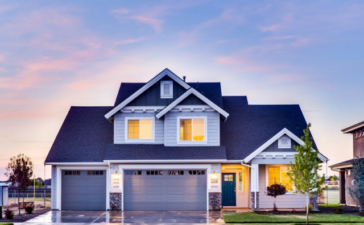It’s easy to take your home’s HVAC system for granted – until it breaks down. That’s when you realize just how crucial it is to have a functioning HVAC system, especially during the hot summer months. Learning how to take proper care of your HVAC system is a requirement for homeowners, but it can be hard to know what to do without any experience. Those who are used to renting have likely relied on a landlord to address any HVAC issues as they arise, but when you own your property, you’ll have to resolve them on your own. If you want to be more informed, read on to find out how to troubleshoot a problematic AC unit.
How can you troubleshoot a problematic AC unit?
You can start by inspecting the target AC unit and looking for any visual signs that could indicate a problem. It may seem obvious, but you should check that the unit is turned on and that the thermostat’s batteries aren’t dead first. There are many common problems that can affect air conditioning units, some of which need to be addressed by an HVAC technician, but there are some things you can address on your own. Dirty filters are often the cause of HVAC breakdowns, so if you haven’t changed your filter recently, changing it is the best place to start. Your filter should be changed on a monthly basis if you want to ensure peak performance.
If your air conditioner isn’t working and you’ve already checked to make sure that it’s turned on and that the filter is clean, the next thing you should do is check the evaporator coils. If the evaporator coils are frozen, the AC won’t be able to function properly. To see if the coils are frozen, you’ll need to locate them first. They’re usually inside the air conditioning unit, near the bottom. Once you’ve found the coils, use a flashlight to look at them. If they’re covered in frost or ice, they have to be defrosted. Call your local HVAC repair if you need information on how to do so safely.
You could also have a wiring or electrical problem. When it comes to your HVAC system, wiring or electrical problems should always be handled by a professional. Not only is it dangerous to try and fix these issues on your own, but you could also end up doing more damage to your system. A technician can diagnose the issue and provide the necessary repairs to get your system up and running again.
Why is your HVAC system so important?
Your HVAC system is your first line of defense against poor indoor air quality. Indoor air pollution can have a significant impact on your health in a number of ways. It can cause headaches, fatigue, and respiratory problems, and can even lead to more serious health conditions like coronary artery disease, emphysema, respiratory infections, strokes, and even certain types of cancer. That’s why it’s necessary to have a good HVAC system that can keep your indoor air quality up to par. Proper indoor hygiene and the use of air purifiers in high traffic rooms can also have a positive effect on the quality of your indoor air.
You can make your HVAC system even more effective by upgrading to a smart thermostat. They can drastically reduce your energy consumption by automatically adjusting the temperature when you’re not home or when you’re asleep, which can result in lower utility bills. They’re more convenient too, as smart thermostats can be controlled through a smartphone app, so you can adjust the temperature no matter where you are. Your smart thermostat can even manage the humidity and air quality in your home. This is especially useful for those who suffer from allergies or asthma.
Your HVAC system is one of the most important systems in your home when it comes to protecting your comfort and safety. However, your unit needs to be in good working order and properly maintained in order for you to receive these benefits. If your air conditioning unit starts to malfunction, you can start by looking for any obvious signs of an issue and changing the filter. If the unit still won’t work, you may have an issue with the evaporator coils, wiring, or electrical system. In any case, it’s smart to call an HVAC technician and have them handle more complicated repairs, rather than making it worse or risking damage to yourself or your home.







